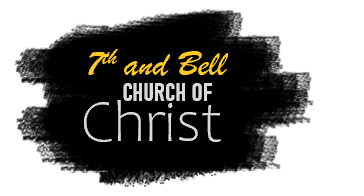
The Fear of the Lord is Clean
It can be very difficult to properly describe feelings and emotions, and fear often fits under that category. A dictionary will explain the word fear similar to this: a distressing emotion aroused by impending danger, evil, or pain. Fear is certainly that feeling that everyone has experienced at times in this world, and when it is present, it affects every aspect of our life in a truly unpleasant way. On the good side, we know that a lot of our fears do not last long. However, what about a fear that will last forever?
In the nineteenth psalm, the ninth verse says: “The fear of the LORD is clean, enduring forever.” Now if this psalm was speaking of any other fear, this article would end here, for I do not know how to provide encouragement for bearing with a fear that will never go away; however, the psalmist describes the “fear of the LORD” with a word that cannot describe any other fear: “clean.” The Hebrew word translated “clean” does not refer to being inwardly or spiritually clean (i.e. pure, holy), but physically clean, washed of all dirt, filth, and bacteria. So why is this word used to describe the fear of God?
The Psalms speak of fear quite often, such as in Psalm 31:13, “For I hear the slander of many; Fear is on every side; While they take counsel together against me, They scheme to take away my life.” Isn’t that how we refer to fear most often? It is fear-based on some of mankind’s desire to act wickedly against another. It is men wanting to do harm to their neighbors. This kind of fear is a distressing emotion that cannot be considered “clean,” for it is covered in suspicions of other people’s wickedness and desire for what is vile.
The clean fear of the LORD is an entirely different matter. It is not contaminated with evil suspicions, nor spotted with the dirt of wickedness, nor polluted with the bacteria of lies, nor soiled by the desire to do harm, nor infected with the love of covetousness, nor made foul by an evil eye, or tainted with lust. Fear in this world is infested with another’s horribly wicked intentions, but the fear one would have toward God is CLEAN. God is so far removed from impure intentions toward us, as a result, fearing God does not produce the same unpleasant feelings that other fears do. In fact, the Psalmist tells us that fear for God is something that we ought to desire to obtain! It is to be desired above the greatest riches of this earth, “yea, than much fine gold;” it is “sweeter also than honey and the honeycomb” (Psalm 19:10). Moreover, we learn in Psalm 19:11, that by the fear of the LORD we receive a warning from God’s word to not engage in that which is unclean, and in continuing in the fear of God “there is great reward.”
The Apostle John also speaks of the vast difference between worldly fears and clean godly fear. In 1 John 4:18, we read: “There is no fear in love; but perfect love casts out fear, because fear involves torment. But he who fears has not been made perfect in love.” The first thing to point out is that John speaks of “fear” as in worldly fear (the kind that he says: “involves torment”), he is not talking about the fear of the LORD. In contrast, John argues that “love,” (that is, our love for God, see the context: 1 John 4:17-20) is entirely contrary to the fears of this world. This is one of the major reasons why the “fear of the LORD is clean,” because it involves love. One fears God because one loves God. And the fear is of the purest and loveliest form.
Many may recall local preachers defining the fear of God like this: to have respect for God, to revere and honor Him. This is the proper way to define godly fear from both the Hebrew word and Greek word. Such a definition rightly points out that this fear is unique. It is clean. For there is no uncleanness or corruption in sincere respect, especially if respect is due. And seeing that our God is worthy of the deepest reverence and honor, it is with great joy and love for God that we fear Him. Speaking of joy, in Psalm 2:11, we are admonished to “Serve the LORD with fear, And rejoice with trembling.” What other fear could produce rejoicing than godly fear? What a privilege it is to fear God! What a constant source of joy it is to serve Him, honor Him, love Him, and revere His great name. And let’s not forget the “great reward” mentioned in Psalm 19:11, for our choice to fear the LORD.
I hope this discussion was helpful in coming to a better understanding of fear in the scriptures. May it spur on further study of this subject, for lessons on the “fear of the LORD” are found from Genesis through Revelation. The LORD bless you in your studies.
by Tanner Campbell
